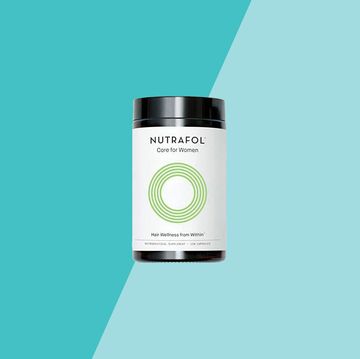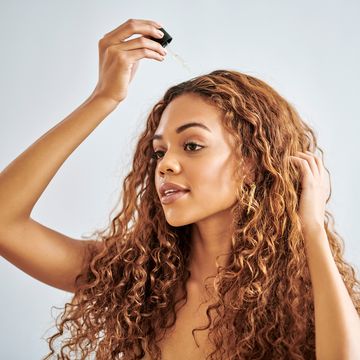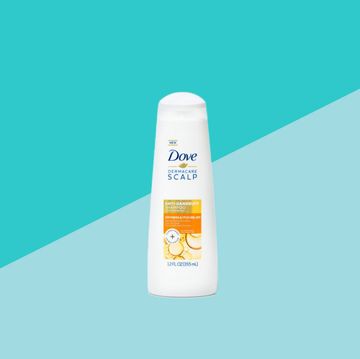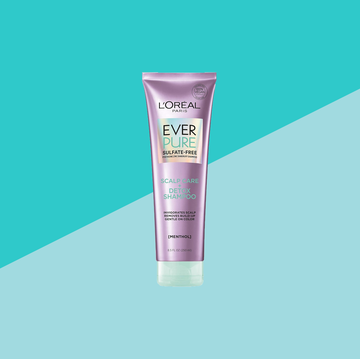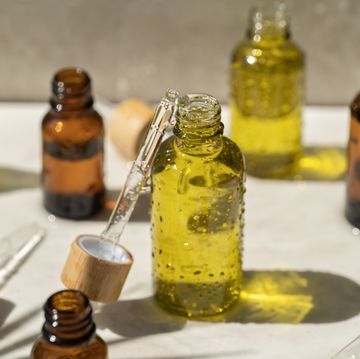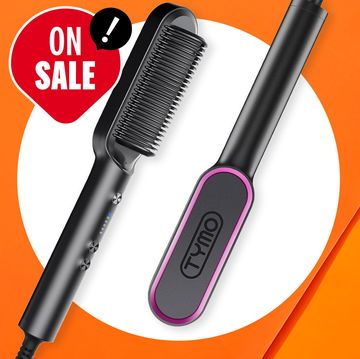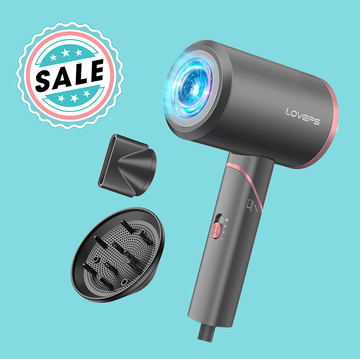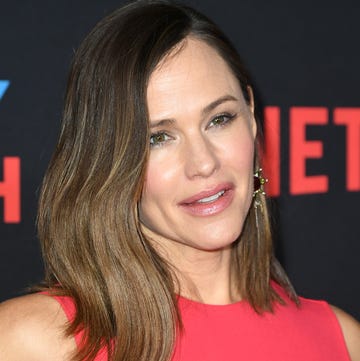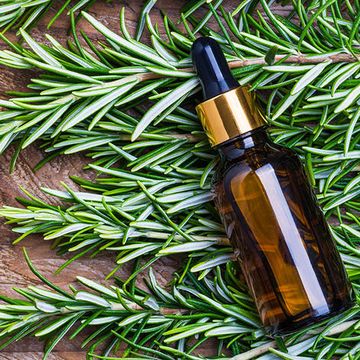Dry hair is the pits. Dry hair sticks out straight and dry like the bristles on a broom. It won't curl, it won't wave, it won't shine. All dry hair does is make you feel grouchy every time you look in the mirror. You need dry hair remedies that work.
"Dry hair is a tough problem," sympathizes Patricia Farris Walters, MD, clinical assistant professor of dermatology at Tulane University School of Medicine in New Orleans. "Generally, dry hair is caused by overprocessing—bleaching, coloring, straightening, and perming. It's further aggravated by use of heat-intensive devices like blow-dryers and curling irons."
More from Prevention: 5 Tips For Happier Hair
Normally, the cells in each strand of hair line up in straight rows like the shingles on a roof, explains Yohini Appa, PhD, director of product efficacy at the Neutrogena Corporation in Los Angeles. But if tiny sections of your hair's outer cell layer have been chipped or stripped away by harsh chemicals or intense heat, exposing the inner layers of the hair shaft, the hair loses moisture. Also, damaged and dry hair doesn't reflect light the way that healthy, smooth hair does, so dry hair looks dull and lifeless.
Here are dry hair remedies you can do at home.
Shampoo, then condition. Proper shampooing is the first step to a healthy scalp and manageable hair, but don't use a conditioning shampoo, says Dr. Appa. Two-in-one products that combine shampoo and conditioner really can't do a good job of either cleansing or conditioning. Instead, use a gentle shampoo to cleanse, then follow with a conditioner specifically geared for dry hair every time you shampoo. Don't worry about shampooing too often. Today's gentle shampoos are designed for frequent use.
Deep-condition regularly. To fill nicks and chips in the hair's damaged outer layer and restore shine, Elizabeth Whitmore, MD, assistant professor of dermatology at Johns Hopkins University School of Medicine in Baltimore, recommends that you deep-condition. Depending on the condition of your hair, once a week or once every few weeks is all that's needed. Consisting of various combinations of natural and synthetic ingredients (including proteins, polymers, or other additives), deep conditioners don't "feed" your hair; they just fill in defects and coat the hair shaft, resulting in a smooth, flat surface that will reflect light and restore shine to your hair.
For maximum effectiveness, Dr. Whitmore suggests that you apply a deep conditioner before you shampoo. Gently work the conditioner into your hair with your fingertips, and allow it to be absorbed for a few minutes. Then shampoo, and follow with your regular conditioner.
Ditch the chemicals. Say goodbye to harsh dyes and perms, and your hair will thank you.
More from Prevention: 3 At-Home Hair Color Tips
[header = Dry Hair Treatment]
Dry Hair Treatment
Fortunately, say doctors, you can repair the damage that causes dry hair with a few simple changes in your hair care routine. (Including adding our picks for this year's best hair care products.)
Pat your hair dry. Hair dryers, blowers, and even vigorous towel-drying can rough up the outer layer of hair cells. So whenever possible, pat or gently squeeze your hair dry with a towel, and avoid rough handling, suggests Dr. Appa.
Use thermal styling conditioners. If you must blow-dry your hair, says Dr. Appa, spray it with a thermal conditioner designed to both treat and prevent dry hair.
Protect your tresses. To prevent the sun from drying your hair or exacerbating hair that's already dry, mist your hair with a sunscreen made for hair before you hit the beach or head for the pool, says Dr. Whitmore. Or wear a hat whenever you're out in the sun.
See a doctor if you experience excessive hair loss because of dry hair.
More from Prevention:How to Prevent Hair Loss



